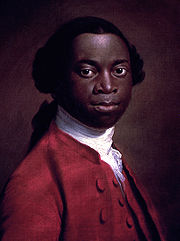Four bits of advice, taken from a puritan journal
Proverbs 10:7 tells us that "The memory of the righteous is blessed". That is one of the best arguments for the study of church history that I know of. We are often blessed by studying the lives of past saints.
Such is the case with puritan minister Richard Rogers (1551-1618), who flourished during the Elizabethan and early Stuart periods. I have drawn four practical applications from the following excerpt, taken from Rogers's diary, and dated December 22, 1587:
1. Rogers arranged regular meetings with his colleagues in ministry, so that they could encourage one another and pray for one another. Do you have a small group of peers who are sincerely seeking to follow Christ, with whom you meet on a regular basis? The writer to the Hebrews urged believers to fellowship often (10:25).
2. On this occasion, Rogers and his friends fasted and prayed together for a common purpose. Fasting and prayer are biblically-ordained helps for the Christian life. They can be especially powerful, I believe, when practiced by a group of believers (see Acts 13:1-3).
When was the last time you were challenged by a fellow Christian (or by your pastor) to do something difficult for the sake of Christ? When was the last time you challenged another Christian to this? Such a challenge carries more weight when the one making it is willing to participate, obviously.
3. Rogers and his friends made Scripture the basis of their gathering. Notice that they focused on Ephesians 1:1-2, and found encouragement from that passage. Is the Word of God at the center of your spiritual life? Do you reflect on what you read, and respond to it in your thoughts and behavior? The man or woman who does so is blessed (Psalm 1:2; James 1:22).
4. In the case of Richard Rogers and his fellow ministers, spiritual refreshment led to spiritual service. They decided, after reading Scripture, praying, fasting and having fellowship together, that they would write up a spiritual guide to edify themselves, and the wider church. Rogers himself was appointed to write this guide, and it was published, 15 years later, as a spiritual manual called Seven Treatises (1603).
Does the encouragement you receive through your time in the Word, in prayer, or with other believers lead you to give back to God, and to others? Paul said that the love of Christ compelled him to minister to others (2 Cor. 5:14).
The journal excerpt above may be found on page 69 of Two Elizabethan Diaries, by Richard Rogers and Samuel Ward, edited, and with an introduction by M. M. Knappen (1933).
Such is the case with puritan minister Richard Rogers (1551-1618), who flourished during the Elizabethan and early Stuart periods. I have drawn four practical applications from the following excerpt, taken from Rogers's diary, and dated December 22, 1587:
"The 6 of this month we fasted betwixt our selves, min[isters], to the stirringe upp of our selves to greater godlines. Veary good thinges we gathered to this purpose, ef[esians] 1:1-2, and then we determined to bringe into writinge a direction for our lives, which might be both for our selves and others. And till we ended all the time passed frutfully."
1. Rogers arranged regular meetings with his colleagues in ministry, so that they could encourage one another and pray for one another. Do you have a small group of peers who are sincerely seeking to follow Christ, with whom you meet on a regular basis? The writer to the Hebrews urged believers to fellowship often (10:25).
2. On this occasion, Rogers and his friends fasted and prayed together for a common purpose. Fasting and prayer are biblically-ordained helps for the Christian life. They can be especially powerful, I believe, when practiced by a group of believers (see Acts 13:1-3).
When was the last time you were challenged by a fellow Christian (or by your pastor) to do something difficult for the sake of Christ? When was the last time you challenged another Christian to this? Such a challenge carries more weight when the one making it is willing to participate, obviously.
3. Rogers and his friends made Scripture the basis of their gathering. Notice that they focused on Ephesians 1:1-2, and found encouragement from that passage. Is the Word of God at the center of your spiritual life? Do you reflect on what you read, and respond to it in your thoughts and behavior? The man or woman who does so is blessed (Psalm 1:2; James 1:22).
4. In the case of Richard Rogers and his fellow ministers, spiritual refreshment led to spiritual service. They decided, after reading Scripture, praying, fasting and having fellowship together, that they would write up a spiritual guide to edify themselves, and the wider church. Rogers himself was appointed to write this guide, and it was published, 15 years later, as a spiritual manual called Seven Treatises (1603).
Does the encouragement you receive through your time in the Word, in prayer, or with other believers lead you to give back to God, and to others? Paul said that the love of Christ compelled him to minister to others (2 Cor. 5:14).
The journal excerpt above may be found on page 69 of Two Elizabethan Diaries, by Richard Rogers and Samuel Ward, edited, and with an introduction by M. M. Knappen (1933).













